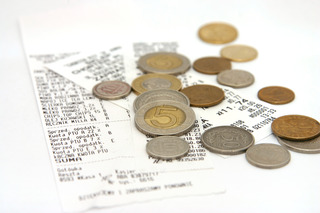EASTERN EUROPE AND KAZAKHSTAN: NEW HORIZONS OF COOPERATION
Published:
1 November 2003 y., Saturday
In 2004 ten of Eastern and Central European countries (ECE) will enter the European Union; it will be record quantity of new members for all the EU history.
Positive and evident experience of Single Europe members urges on potential members to meet a number of necessary requirements for of the Western-European investments inflow and therefore possible increase of living standards at present or in prospects.
The entering of these countries to the European Union can benefit not only them, but also traditional partners of Central and Eastern Europe such as Kazakhstan. Now available investments inflow from the EU members and recent the Brussels grants allowed to recover the some economic sectors and to increase the export level with other states, including Kazakhstan.
For example, the purchase by German “Volkswagen” rather unprofitable in the beginning of 1990s automobile factory “Skoda” in Czech Republic and some affiliated companies in Slovakia. The company has already created number of dealers in Republic of Kazakhstan. Working on prospect, it often signs leasing agreements with business partners.
The European companies investments to Polish economy allowed to develop hi-tech manufactures: computer production, video-audio techniques. Due to the Western technology and the low cost price the goods are attractive not only in the CIS, but in Europe.
In Hungary cooperation of automobile factory «Ikarus» with Swedish company "Volvo" allowed to improve bus manufacture. The trade mark is traditionally well-known in the former Soviet republics.
The European partners’ investments to Romanian economy were more helpful than for other Eastern European states. After the disintegration of the single economic market of socialist countries the state lost not only in economic, but also in political sphere.
Mainly due to the Western help Romania managed to support enterprises and keep workplaces, and that in turn it lowered social excitements and interethnic collisions. France, the active and developed EU member invested Romanian oil sphere that allowed to improve oil and gas refining and to increase hydrocarbons import volume from the Caspian sea and Siberia. Romania considers Kazakhstan as the main oil partner in the CIS except Russia. According to Romanian government the Caspian oil should be transported to Europe via Romanian sea ports in Black Sea. That was the aim of Romanian President Emil Constantinescu’s visit to Kazakhstan in the end of 1990s.
Investments to Slovenia and Bulgaria allowed to increase traditional production – the household chemical goods, utensils, pharmaceutics, goods which are popular in our country. Slovenian pharmaceutical giant – company "KRKA" opened number of joint ventures in Kazakhstan, creating workplaces for our citizens.
The Baltic States broke a record in attracting investments among the Eastern European countries. This allowed to quickly pass unpleasant, but necessary transformational processes in economic and political sphere. Finland and Germany created many joint ventures in Estonia and Latvia, thus improved competitiveness of the Baltic goods, many of which are exported mainly to the CIS countries. For example, in Latvia the Riga diesel factory delivers locomotives and cars, qualitative and inexpensive diesel stations which are attractive for the CIS countries. There are a lot of joint ventures both in Kazakhstan and the Baltic States. The activity of association «KazBalt» is very beneficial for the partners.
Moreover, in New Europe delegates from the Eastern European states will have influence in the decision-making process. It is important to pay attention to strengthening cooperation with all Eastern European countries.
Šaltinis:
KAZINFORM
Copying, publishing, announcing any information from the News.lt portal without written permission of News.lt editorial office is prohibited.
The most popular articles
 European cities may still be feeling the pinch of the global recession.
more »
European cities may still be feeling the pinch of the global recession.
more »
 The EBRD Board of Directors has approved a $50 million convertible loan to Petrolinvest to finance the completion of exploration works at the company’s main oilfields.
more »
The EBRD Board of Directors has approved a $50 million convertible loan to Petrolinvest to finance the completion of exploration works at the company’s main oilfields.
more »
 The European Commission welcomes the adoption today at the United Nations in Geneva of the first international regulation on safety of both fully electric and hybrid cars.
more »
The European Commission welcomes the adoption today at the United Nations in Geneva of the first international regulation on safety of both fully electric and hybrid cars.
more »
 Bloomberg has today announced that Lithuania had the outlook on its credit rating raised by Fitch Ratings after the Government implemented an austerity program to curb the budget deficit.
more »
Bloomberg has today announced that Lithuania had the outlook on its credit rating raised by Fitch Ratings after the Government implemented an austerity program to curb the budget deficit.
more »
 In January 2010, compared with December 2009, the highest increase in retail trade in the EU-27 Member States was observed in Lithuania.
more »
In January 2010, compared with December 2009, the highest increase in retail trade in the EU-27 Member States was observed in Lithuania.
more »
 Three thousand former car, refrigerator and construction workers in Germany and Lithuania will get €7.6 million in EU globalisation adjustment fund aid for training, self-employment and job guidance after Parliament gave the green light on Tuesday.
more »
Three thousand former car, refrigerator and construction workers in Germany and Lithuania will get €7.6 million in EU globalisation adjustment fund aid for training, self-employment and job guidance after Parliament gave the green light on Tuesday.
more »
 Some 80% of Europeans continue to travel for their holidays according to a new Eurobarometer survey on ‘The attitudes of Europeans towards tourism 2010’.
more »
Some 80% of Europeans continue to travel for their holidays according to a new Eurobarometer survey on ‘The attitudes of Europeans towards tourism 2010’.
more »
 The EU's internal market will be under scrutiny Tuesday when a series of reports will be debated by MEPs in Strasbourg.
more »
The EU's internal market will be under scrutiny Tuesday when a series of reports will be debated by MEPs in Strasbourg.
more »
 EU Employment and Social Affairs Ministers today agreed on a new facility to provide loans to people who have lost their jobs and want to start or further develop their own small business.
more »
EU Employment and Social Affairs Ministers today agreed on a new facility to provide loans to people who have lost their jobs and want to start or further develop their own small business.
more »
 Over €7.6 million in financial aid for training and self-employment could be available to former workers in German and Lithuanian if MEPs back the measures Tuesday.
more »
Over €7.6 million in financial aid for training and self-employment could be available to former workers in German and Lithuanian if MEPs back the measures Tuesday.
more »